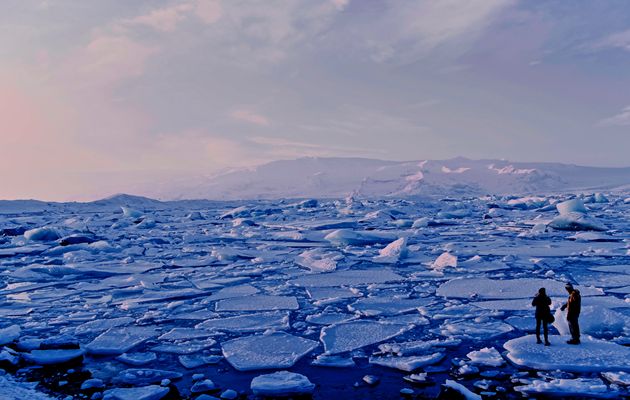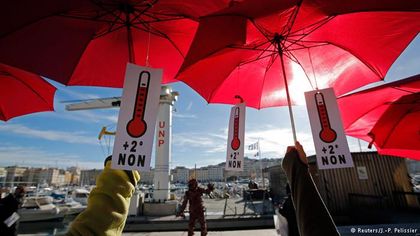2016 was the warmest year on record
Scientists say human emissions of CO2, the warming of the Arctic, and El Nino were the main factors of the new high. “God has called us to be responsible stewards of creation”, Christian activists say.
Nasa, BBC · WASHINGTON D.C. · 19 JANUARY 2017 · 16:09 CET

Last year was the warmest since modern record keeping began in 1880, according to the main meteorological agencies from around the world, which released their annual reports.
Data from the World Meteorological Organisation (WMO), NASA, the National Oceanic and Atmospheric Administration (NOAA) and the UK Met Office, shows temperatures were around 0.07 degree Celsius above the 2015 mark.
"2015 has been the warmest year on record up until now, so 2016 has just beaten that and and it's beaten that by about 0.1- 0.12 of a degree Celsius, which doesn't seem like a lot, but in terms of the year to year variations it's actually huge", Dr Gavin Schmidt, Nasa GISS Director, told BBC News.
THIRD YEAR IN A ROW
Although the Met Office increase was within the margin of error, Nasa and NOAA studies say that 2016 was the third year in a row to break the record.
Schmidt explained that this record “is driven mainly by changes in the tropical Pacific where we had an El Nino event that produced a lot of warmth. But we've also seen long term trends in warming mostly due to the increasing greenhouse gases."
“2016 is remarkably the third record year in a row in this series, we don't expect record years every year, but the ongoing long-term warming trend is clear”, he concluded.
“HUMAN-CAUSED CLIMATE CHANGE”
The main reason for the rise was the burning of fossil fuels like oil and gas which sent carbon dioxide, methane and other greenhouse gases into the atmosphere. The El Nino effect also contributed in raising the planet's temperature, experts said.
“Long-term indicators of human-caused climate change reached new heights in 2016. Carbon dioxide and methane concentrations surged to new records. Both contribute to climate change”, Petteri Taalas, WMO General Secretary, pointed out.
ARCTIC WARMING FASTER
Other factors that have impacted temperatures in 2016 included unusual warmth in the Arctic. While the sea ice extent there last year didn't break the record, the mercury stayed high and the smaller amount of ice now present in the region is at unprecedented levels for the time of year.
"The Arctic is warming twice as fast as the global average. The persistent loss of sea-ice is driving weather, climate and ocean circulation patterns in other parts of the world. We also have to pay attention to the potential release of methane from melting permafrost", Taalas warned.
According to the WMO Secretary, "we have also broken sea ice minimum records in the Arctic and Antarctic."
LOOKING TOWARDS THE FUTURE
Of great concern to scientists and politicians is the fact that the newly published temperature data shows the Earth is once again more than 1 degree warmer than pre-industrial times, and edging closer to the threshold of of 1.5C set under the Paris climate pact.
Researchers say that 2017 is unlikely to break the warming record but will be in the top five hottest years.
At the recent World Summit on Climate COP21, international agreements were reached to moderate human action that is causing this progressive global warming.

During that summit, Christians also raised their voices in a conference, where they emphasised the importance of working to find a solution to this problem, because “God has called us to be responsible stewards of creation, to love his good work, to care and look after it, and love all his creatures, animals and mankind.”
Published in: Evangelical Focus - science - 2016 was the warmest year on record
